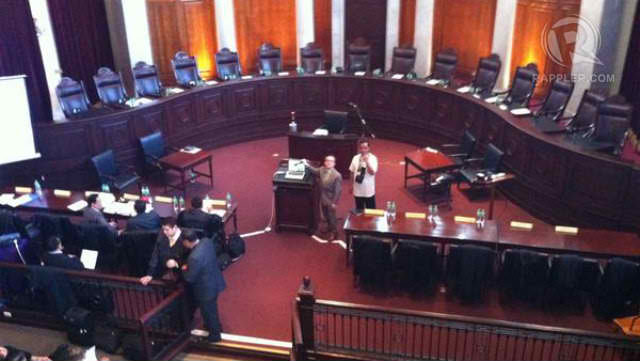SUMMARY
This is AI generated summarization, which may have errors. For context, always refer to the full article.

MANILA, Philippines (UPDATED) – After tackling cybersex in the oral arguments on the Cybercrime Prevention Act of 2012 on January 15, the Supreme Court has dismissed the petition that raised the same issue.
The SC junked on Thursday, January 24, the petition filed by De La Salle University student council president Julie Ann Cabuhat, UP student council chair Gabriel Paolo Dino, UE student council president Ephraim Ocampo and blogger Lisandro Elias Claudio. The dismissal brings down the number of petitions against the law to 15.
The High Court said entertaining the petition will unduly delay the proceedings.
The 4 filed a petition on January 12 questioning the validity of the cybercrime law, particularly its provision on cybersex.
Section 4(c)(1) of the cybercrime law punishes cybersex (the willful engagement, maintenance, control, or operation, directly or indirectly, of any lascivious exhibition of sexual organ or sexual activity, with the aid of a computer system, for favor or consideration).”
Justice Roberto Abad had tasked lawyer Harry Roque to include the issue in his oral arguments last January 15. Roque said the provision should be nullified because it does not clearly define what constitutes lascivious acts. It could also lead to censorship, Roque told the Court.
The 15 other petitions said the cybercrime law should be declared unconstitutional because of its provisions on online libel, real-time collection of data, and government power to shut down web sites.
The SC will hold a second round of oral arguments on January 29, where Solicitor General Francis Jardeleza will defend the validity of the law save for Sec. 19 or the takedown clause. The government said this provision should be struck down for being unconstitutional because it constitutes prior restraint. – Rappler.com
Add a comment
How does this make you feel?
There are no comments yet. Add your comment to start the conversation.